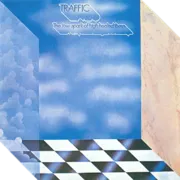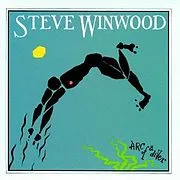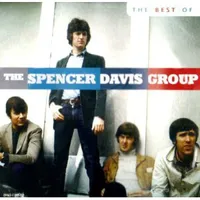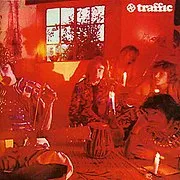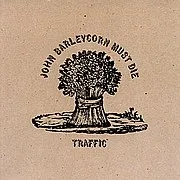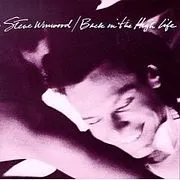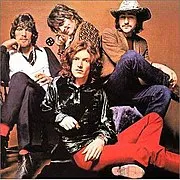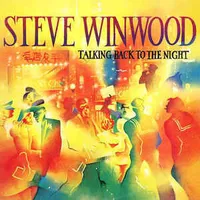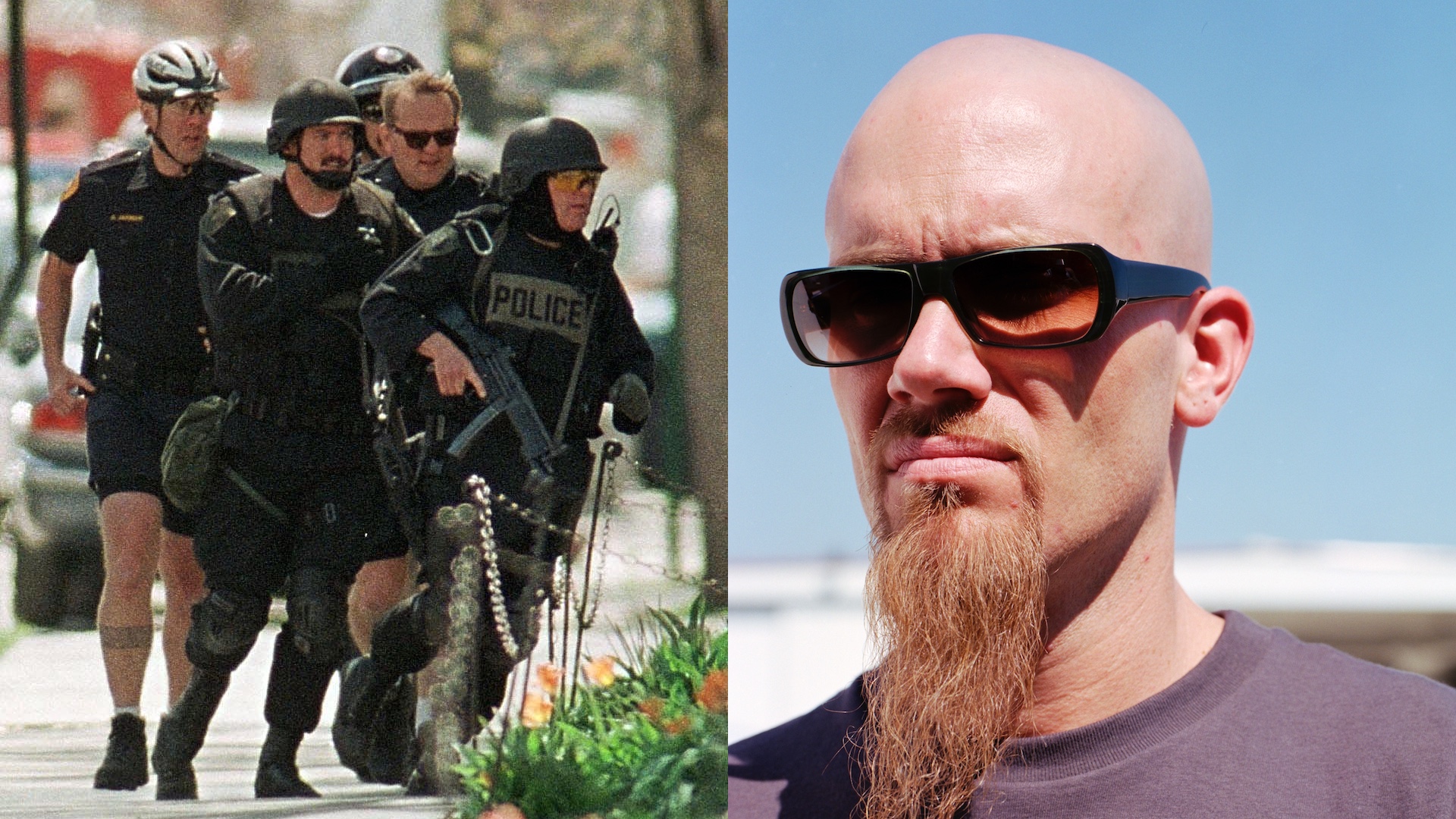Steve Winwood: A guide to his best albums
With the Spencer Davis Group, Traffic, Blind Faith and solo, Steve Winwood has shown himself to be a truly singular talent. These are his best albums

In a career that spans 45 years, Stephen Lawrence Winwood has been many things: child prodigy, leader of one of British rock’s most innovative bands, co-founder of the world’s first supergroup, multimillion-selling solo star… And through it all, three qualities have marked out Winwood as a truly singular talent: his mastery of the Hammond B-3 organ, his brilliance as a songwriter and, above all, one of the most richly expressive and soulful voices in rock.
Born in Handsworth, Birmingham on May 1, 1948, Steve Winwood was barely into his teens when he served his rock’n’roll apprenticeship playing in a band that backed blues legends Muddy Waters, Howlin’ Wolf, BB King and Chuck Berry.
He was still only 15 when he joined the Spencer Davis Group along with his older brother Muff. Young Stevie was the group’s star, co-writing and singing their now classic 1967 UK No.1 Gimme Some Lovin’. But he didn’t hang around. By the end of that year he’d formed a new band, Traffic.
Originally based in a cottage in rural Berkshire, their very own hippie commune, Traffic’s idiosyncratic blend of rock, folk, blues, jazz and psychedelia made them trailblazers of the new rock era. But Winwood was always looking for fresh challenges. In 1968 he made a guest appearance on the Jimi Hendrix Experience’s landmark double album Electric Ladyland, playing organ on the extended blues jam Voodoo Chile. And in 1969, with Traffic disbanded, Winwood hooked up with another icon, guitarist Eric Clapton, to form the short-lived, one-album supergroup Blind Faith.
Winwood revived Traffic in 1970, but by 1975 the group had become passé and Winwood went solo – in the most literal sense; on 1980’s Arc Of A Diver, his commercial breakthrough, Winwood played every instrument himself. In 1988, at his peak as a solo artist, Winwood topped the US album chart with Roll With It.
These days he operates in a more low-key fashion, releasing solo albums as and when he pleases, his latest being 2008’s Nine Lives. With his status as a rock legend secure, Steve Winwood doesn’t have to push himself too hard. As he once said: “I never wanted to be a great star. I wanted only to be a great musician.”

Traffic - The Low Spark Of High Heeled Boys (Island, 1971)
If there’s one song that best illustrates the genius of Steve Winwood, it’s the 11-minute title track of Traffic’s fifth album, a hypnotic jazz-rock masterpiece and a searing indictment of the music industry.
Already a veteran at 23, Winwood felt exploited. Two sub-par Traffic albums – the odds ‘n’ sods collection Last Exit and the live Welcome To The Canteen – had resulted from contractual obligations. Winwood’s anger was softly voiced but no less powerful for it. There are many other great songs on this album, but on the track The Low Spark… Winwood truly bared his soul.
Steve Winwood - Arc Of A Diver (Island, 1980)
Winwood’s eponymous solo debut, released in 1977, was a flop. Coming just two years after Traffic split, it was mostly co-written with former Traffic bandmate Jim Capaldi. Winwood seemed unwilling, or unable, to move on. Three years later everything changed.
Arc Of A Diver established Winwood as a successful solo star with a new vision. Updating his sound with state-of-the-art synthesisers, he embraced the new decade with a modern, sophisticated blend of soft rock and what critics rather patronisingly dubbed ‘blue-eyed soul’. Arc Of A Diver was the album that defined Steve Winwood as a solo artist.
Spencer Davis Group - The Best Of The Spencer Davis Group (EMI, 1998)
The songs that first made Steve Winwood famous are still thrilling more than 40 years on. Foremost of these is Gimme Some Lovin’, a jubilant rhythm & blues stomp powered by Winwood’s electrifying Hammond organ riff and sung with the soul power of a Motown superstar.
The song has been covered many times but nothing comes close to matching the original. Also included on this collection is another classic hit co-written and sung by Winwood, the blistering I’m A Man, which went Top 10 in both the UK and US.
Traffic - Mr. Fantasy (Island, 1967)
Released in the year of Sgt. Pepper and the Stones’ similarly acid-tweaked Their Satanic Majesties Request, Traffic’s first album was very much a product of the psychedelic age, even though it was originally issued without the quaintly trippy hits Paper Sun and Hole In My Shoe.
Some of the songs are truly bizarre, such as Berkshire Poppies, but Winwood had a more serious agenda, as illustrated by the soulful Dear Mr. Fantasy and the melancholy No Face, No Name, No Number. Moreover, the jazz-influenced jam Dealer and the sitar-led Utterly Simple posited Traffic as a rock group without limitations.
Blind Faith - Blind Faith (Polydor, 1969)
Forming Blind Faith, Winwood teamed up with former Cream members Eric Clapton and drummer Ginger Baker, plus bassist Rick Grech, in ‘the original supergroup’. The band made their live debut in front of an audience of 100,000 at London’s Hyde Park in 1969.
Two months later this album was at No.1 in the UK and the US. In places it was brilliant, Clapton’s Presence Of The Lord a deep, spiritual blues, Winwood’s Can’t Find My Way Home a beautiful acoustic number. But when Clapton bailed, Blind Faith was over, their sole album forever marred by that infamous cover photograph.
Traffic - John Barleycorn Must Die (Island, 1970)
After Blind Faith and an even briefer tenure in another ‘supergroup’, Ginger Baker’s Airforce, Winwood began work on a solo album. But, having enlisted Traffic drummer Jim Capaldi and sax/flute player Chris Wood, Winwood soon bowed to the inevitable and re-formed the band.
His decision was quickly vindicated; John Barleycorn Must Die was Traffic’s first gold-certified album in the US. As a trio, the group mixed fluid, experimental jazz rock with English folk themes, reworking a traditional song dating back to 1465 for this album’s title track.
Steve Winwood - Back In The High Life (Island, 1986)
Winwood’s fourth solo album marked the end of his 20-year association with Island Records, and he left them on a high. Propelled by the chart-topping single Higher Love, it sold more than five million copies. The album is a model of elegant, soul-influenced mainstream rock, all very 80s but so finely crafted that it has aged surprisingly well.
Having performed his previous two albums alone, this time Winwood called on some big names, including James Taylor, Chaka Khan, Joe Walsh and Chic’s Nile Rodgers. And, once again, there was a co-writing credit for friend Vivian Stanshall.
Traffic - Traffic (Island, 1968)
Creative tension was always an issue for Traffic. Even when creating their first album in a rustic idyll there was a clear disparity between Winwood and guitarist Dave Mason, who wrote Hole In My Shoe, a song Winwood recorded “under duress”.
Mason left the group soon after Mr. Fantasy, but, in a surprise volte-face, he returned for this second album. His Feelin’ Alright? was in keeping with the album’s laid-back vibe but, tellingly, he played no part on its key track, (Roamin’ Thro’ The Gloamin’ With) 40,000 Headmen. In short order, Mason was fired, Traffic was put on ice and Winwood was hanging out with Eric Clapton.
Steve Winwood - Talking Back To The Night (Island, 1982)
Winwood’s third solo album has been largely forgotten. Released two years after the classic Arc Of A Diver, and again recorded by Winwood alone, it failed to match its predecessor, stalling at No.28 in the US.
It is, though, a strong album, and its most famous song, the AOR anthem Valerie, has enjoyed a long and unusual afterlife. When first released as a single in 1982, Valerie stiffed. But a remixed version hit the US Top 10 in 1987, and in 2004 the song was reworked by Eric Prydz for his UK No.1 bangin’ choon Call On Me. Winwood was so impressed by Prydz’s version that he re-recorded vocals for it.
Sign up below to get the latest from Classic Rock, plus exclusive special offers, direct to your inbox!
Freelance writer for Classic Rock since 2005, Paul Elliott has worked for leading music titles since 1985, including Sounds, Kerrang!, MOJO and Q. He is the author of several books including the first biography of Guns N’ Roses and the autobiography of bodyguard-to-the-stars Danny Francis. He has written liner notes for classic album reissues by artists such as Def Leppard, Thin Lizzy and Kiss, and currently works as content editor for Total Guitar. He lives in Bath - of which David Coverdale recently said: “How very Roman of you!”
